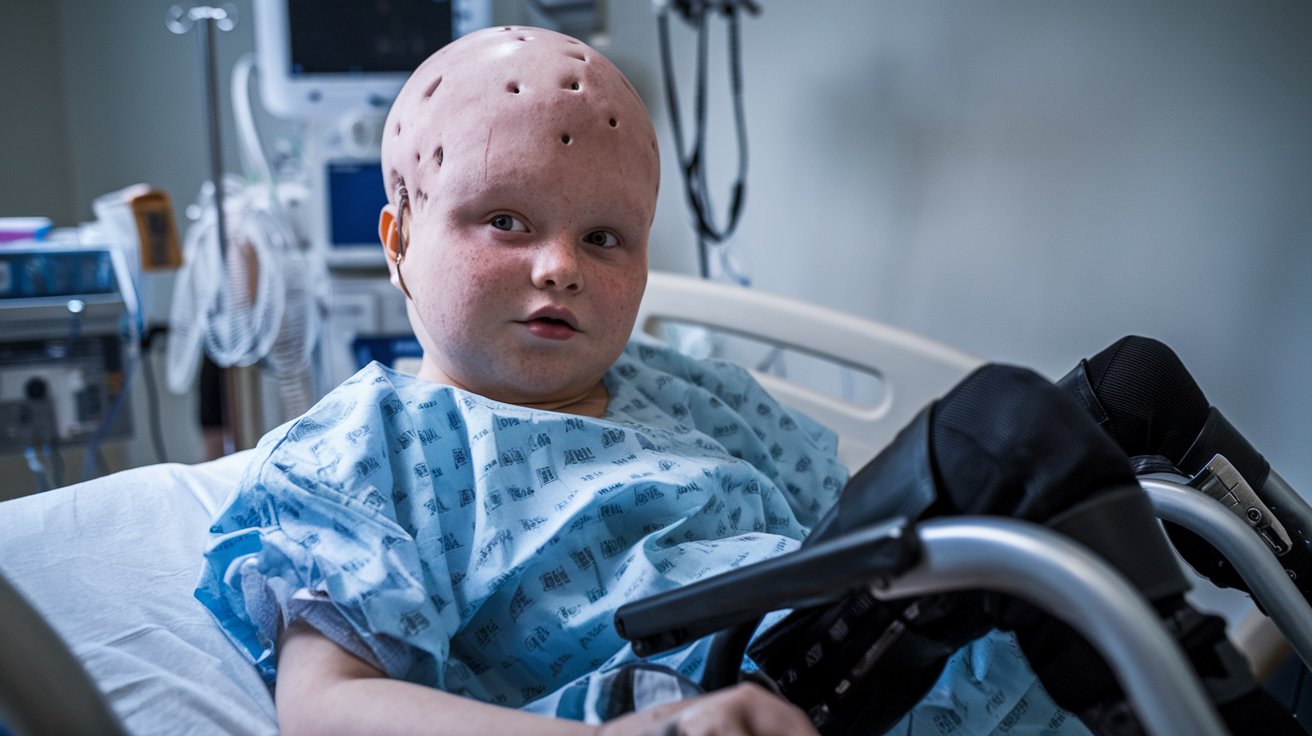
Macrocephaly Short Stature Paraplegia (MSSP) is a rare genetic disorder characterized by an unusually large head, short stature, and paralysis of the lower limbs. This condition affects both physical and neurological development, leading to various challenges for those diagnosed. MSSP can be caused by mutations in specific genes, which disrupt normal growth and development. Symptoms often appear early in life, requiring ongoing medical care and support. Understanding MSSP is crucial for providing appropriate treatment and improving the quality of life for affected individuals. This article will explore 25 essential facts about MSSP, shedding light on its causes, symptoms, and management.
Key Takeaways:
- Macrocephaly Short Stature Paraplegia (MSSP) is a rare genetic disorder causing large head size, short stature, and lower limb paralysis. It requires lifelong support and management for improved quality of life.
- Understanding the genetic causes and symptoms of MSSP can lead to better diagnosis and treatment options, including therapies, medications, and ongoing research for potential future advancements.
What is Macrocephaly Short Stature Paraplegia?
Macrocephaly Short Stature Paraplegia (MSSP) is a rare genetic disorder characterized by an unusually large head, short stature, and paralysis of the lower limbs. This condition affects various aspects of a person's physical development and can present unique challenges.
- Macrocephaly refers to an abnormally large head size, often noticeable at birth or early infancy.
- Short stature means individuals with MSSP are significantly shorter than average for their age and sex.
- Paraplegia involves paralysis of the lower limbs, impacting mobility and daily activities.
Causes and Genetics of MSSP
Understanding the root causes and genetic factors behind MSSP helps in diagnosing and managing the condition effectively.
- Genetic mutation is the primary cause of MSSP, often involving changes in specific genes responsible for growth and development.
- Autosomal recessive inheritance means both parents must carry the mutated gene for a child to be affected.
- Spontaneous mutations can also occur, where the genetic change happens randomly without a family history.
Symptoms and Diagnosis
Recognizing the symptoms early can lead to better management and support for individuals with MSSP.
- Delayed motor skills are common, with children often taking longer to sit, crawl, or walk.
- Intellectual disability may be present, ranging from mild to severe.
- Seizures can occur in some individuals, requiring medical intervention.
- Hydrocephalus (fluid buildup in the brain) is a potential complication, sometimes necessitating surgical treatment.
- MRI and CT scans are used to diagnose macrocephaly and assess brain structure.
- Genetic testing confirms the diagnosis by identifying specific mutations.
Treatment and Management
While there is no cure for MSSP, various treatments can help manage symptoms and improve quality of life.
- Physical therapy aids in improving mobility and strength.
- Occupational therapy helps individuals develop skills for daily living.
- Speech therapy may be necessary for those with communication difficulties.
- Medications can control seizures and other symptoms.
- Surgical interventions might be required for hydrocephalus or other complications.
Living with MSSP
Adapting to life with MSSP involves support from healthcare professionals, family, and the community.
- Assistive devices like wheelchairs and braces enhance mobility.
- Educational support ensures children receive appropriate learning opportunities.
- Support groups provide emotional and practical assistance for families.
- Regular medical check-ups monitor health and address any emerging issues.
Research and Future Directions
Ongoing research aims to better understand MSSP and develop new treatments.
- Gene therapy holds potential for correcting genetic mutations in the future.
- Clinical trials test new medications and therapies for effectiveness.
- Stem cell research explores possibilities for repairing damaged tissues.
- International collaborations among scientists and doctors improve knowledge and treatment options.
Final Thoughts on Macrocephaly Short Stature Paraplegia
Macrocephaly Short Stature Paraplegia (MSSP) is a rare genetic disorder that affects growth and development. Understanding MSSP can help families and caregivers provide better support for those affected. Key symptoms include an unusually large head, short stature, and varying degrees of paraplegia. Early diagnosis and intervention can improve quality of life, although there is no cure. Genetic counseling is often recommended for families with a history of MSSP. Research continues to explore potential treatments and therapies. Awareness and education about MSSP are crucial for fostering a supportive community. By sharing knowledge and experiences, we can help those living with MSSP lead fuller, more comfortable lives.
Frequently Asked Questions
Was this page helpful?
Our commitment to delivering trustworthy and engaging content is at the heart of what we do. Each fact on our site is contributed by real users like you, bringing a wealth of diverse insights and information. To ensure the highest standards of accuracy and reliability, our dedicated editors meticulously review each submission. This process guarantees that the facts we share are not only fascinating but also credible. Trust in our commitment to quality and authenticity as you explore and learn with us.
